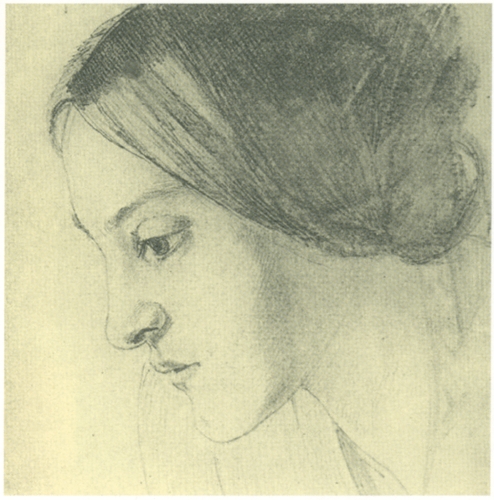…it goes like this:
What would I give for a heart of flesh to warm me through,
Instead of this heart of stone ice-cold whatever I do;
Hard and cold and small, of all hearts the worst of all.
What would I give for words, if only words would come;
But now in it’s misery my spirit has fallen dumb:
Oh merry friends, go your way, I have never a word to say.
What would I give for tears, not smiles but scalding tears,
To wash the black mark clean, and to thaw the frost of years,
To wash the stain ingrain and to make me clean again.
Does this poem reflect Christina Rossetti’s inner mental state or is she observing and reflecting upon the general propensity of the human condition to shape itself into such a state? Is this first person narrative subjective or objective? Introspective or outward looking/observational? This poem is about our experiences of locked in emotion, at least that is my interpretation. The narrator is trapped and unable to express the emotion she/he so desperately seeks to express.
In the first stanza, we immediately relate to the longing for feeling, for a warm heart, for empathy, love and passion. How many of us have felt like this at times? Especially if one is prone to splitting, this non emotional emotional state is relatable; that division from humanity that leaves one cold and blocking out warmth and goodness. The second stanza sees the narrator dumb-struck, no words can be summoned, such is the emotional torture of being locked inside oneself. The third stanza sees the narrator longing for tears but in the emotional desert none will come. The narrator also feels dirtied in this part by a past that we do not know of but there is a pining for tears that would give an emotional release and mental cleansing.
This poem speaks with all of us who have experienced similar emotional blackouts and emotional torment. The feelings therein could have been expressed by any one of us. As both a personal reflection and an observation into the human condition, this poem successfully captures, in three stanzas, what it feels like to be detached from the world and emotionally redundant.
Detachment is a common symptom of many mental health conditions, including my own (BPD), and that internal prison can leave one scratching at the bars inside one’s mind yearning for release. Detachment can also be brought on by trauma and as a side effect of some medications. Trauma can lead to a disengagement of feelings both internally and socially. When situations become too intense they become traumatic and detachment can be triggered in vulnerable individuals. This trauma can also be slowly progressive, turmoil building up over years, as is the case in this Rossetti poem. Detachment is like living life behind a glass pane, life beyond can be seen but it can’t be touched or felt, there is always a cold division preventing interaction.
The arts, in this case literature, can help us by showing us we are not alone. Our experiences are often shared even if we don’t realize it. Our responses have been the same for millennia and it seems the human condition will forever be cursed (or blessed) with a spectrum of mental health conditions; luckily we are blessed (or cursed) with the ability to express them through the arts.
Picture credit:
Christina Rossetti, c. 1850, The Rossetti Archive at http://www.rossettiarchive.org/docs/s425.rap.html [online] Accessed 12th July ,2020.
For a selection of Christina Rossetti Poems, seek here:
https://archive.org/details/poemsofchristina00ross/page/n7/mode/2up [online] Accessed 12th July, 2020. What Would I Give? Is on page 222 of this online book.

